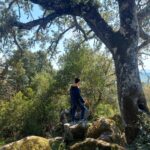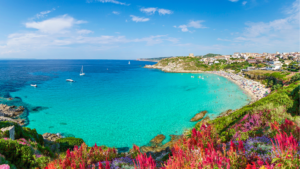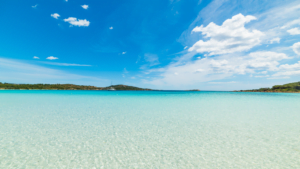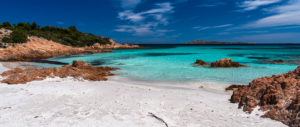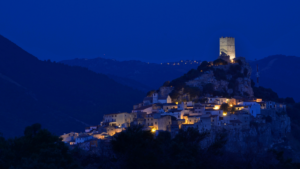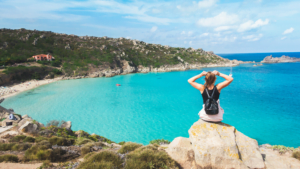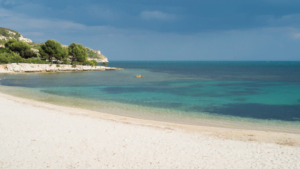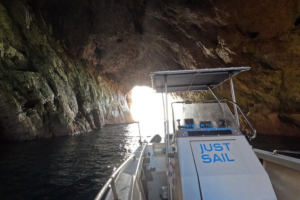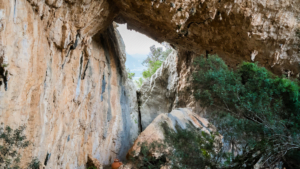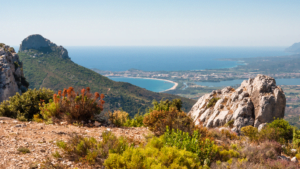Carbonia, located in the southwest part of Sardinia, Italy, is a town rich in history and cultural significance. Founded in the 1930s during the Fascist regime, Carbonia was established as a coal mining town. The name “Carbonia” derives from the Italian word for coal, highlighting its origins as an industrial hub. The town was built to house the workers and their families who were employed in the nearby coal mines, particularly the Serbariu Coal Mine. This period marked a significant phase in Italy’s industrial history, with Carbonia playing a crucial role.
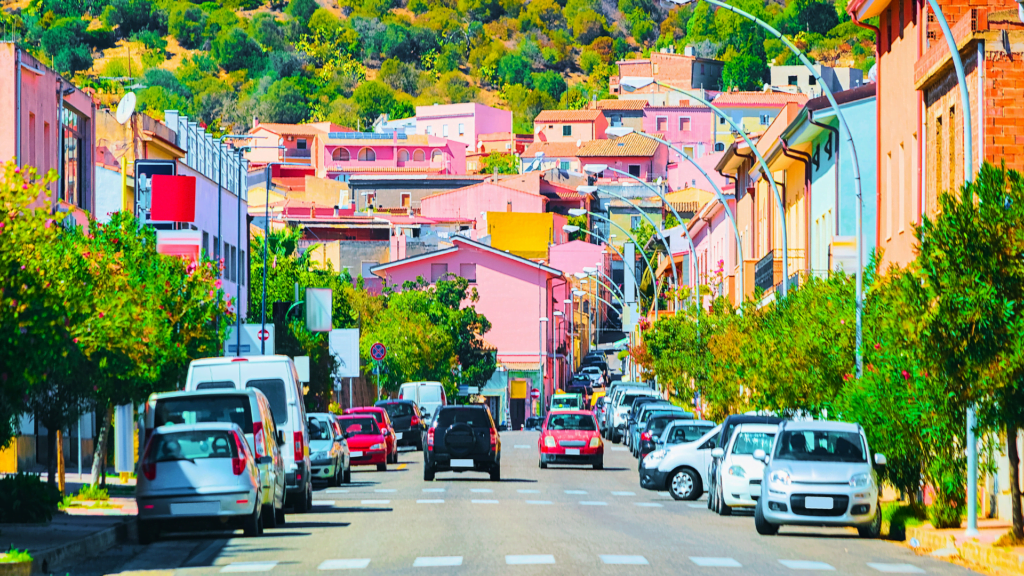
The town’s architecture reflects the rational urban planning typical of the Fascist era, with a blend of functionalism and monumentalism. After the decline of the mining industry in the latter half of the 20th century, Carbonia transitioned to a more diversified economy, focusing on agriculture and tourism. Today, the remnants of its industrial past, including the Museo del Carbone, serve as important cultural and historical sites that attract visitors.
In addition to historical sites, Carbonia is close to stunning beaches and natural attractions like the Grotte Is Zuddas limestone caves, enhancing its appeal as a destination for nature enthusiasts. The town also hosts various cultural events and festivals, such as the Carnevale di Carbonia, which celebrate local traditions and cuisine.
Carbonia’s blend of industrial heritage, archaeological significance, and natural beauty make it a noteworthy destination for those exploring Sardinia. The town offers a unique glimpse into the island’s diverse history and the resilience of its communities.
Top Attractions
Museo del Carbone (Coal Museum)
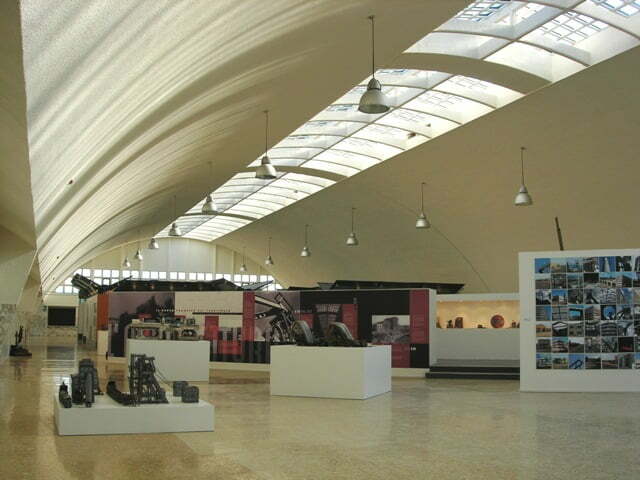

Overview of the Museum and Its Significance
The Museo del Carbone is a central attraction in Carbonia, housed in the former Lamp Room of the Serbariu Coal Mine. This museum offers an in-depth look into the town’s coal mining heritage, reflecting Carbonia’s origins as an industrial hub. The museum plays a crucial role in preserving the history and memories of the miners and their families who lived and worked in the area.
Key Exhibits and Visitor Experience
Visitors can explore various exhibits that include original mining equipment, photographs, and personal artifacts of the miners. The museum features detailed displays about the coal extraction process, the working conditions in the mines, and the social life of the mining community. Guided tours provide additional insights, making the visitor experience both educational and engaging. One of the highlights is the underground tour that allows visitors to see the mine’s infrastructure and understand the challenging conditions faced by miners.
Monte Sirai Archaeological Park
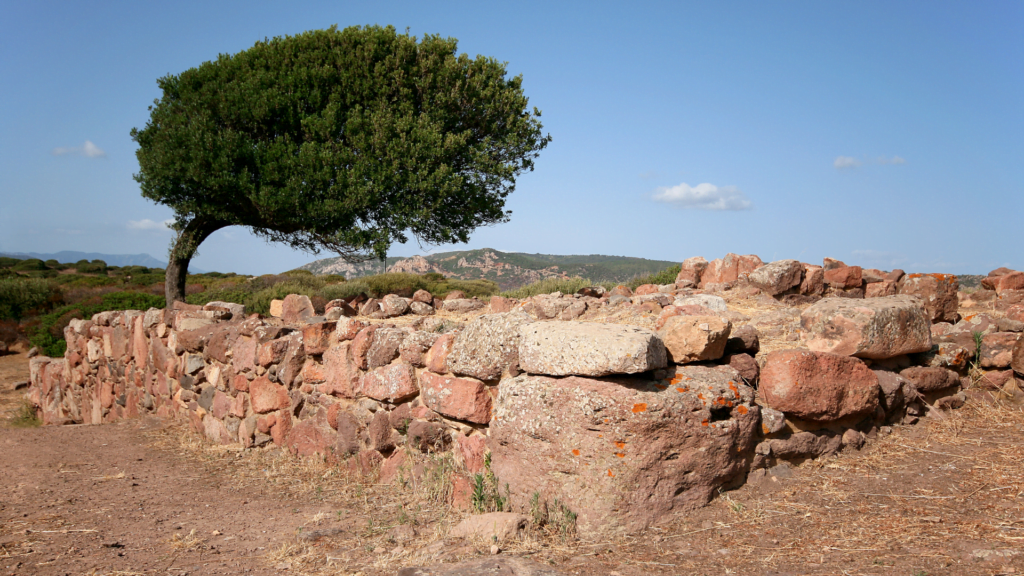

Description of the Site and Historical Importance
Monte Sirai Archaeological Park is an essential historical site located just outside Carbonia. The park is home to the ruins of a Phoenician-Punic settlement and a Nuragic village, offering a unique glimpse into the ancient civilizations that once inhabited the area. The site is strategically located on a plateau, providing breathtaking views of the surrounding landscape, including the Gulf of Palmas and nearby islands.
Notable Ruins and Artifacts
The park features numerous well-preserved ruins, including ancient temples, houses, and necropolises. Key artifacts found here include pottery, tools, and inscriptions that provide valuable information about the daily lives and religious practices of the early inhabitants. The site’s significance is amplified by its continuous occupation from the Neolithic period through the Punic era, making it a vital location for understanding Sardinia’s historical development.
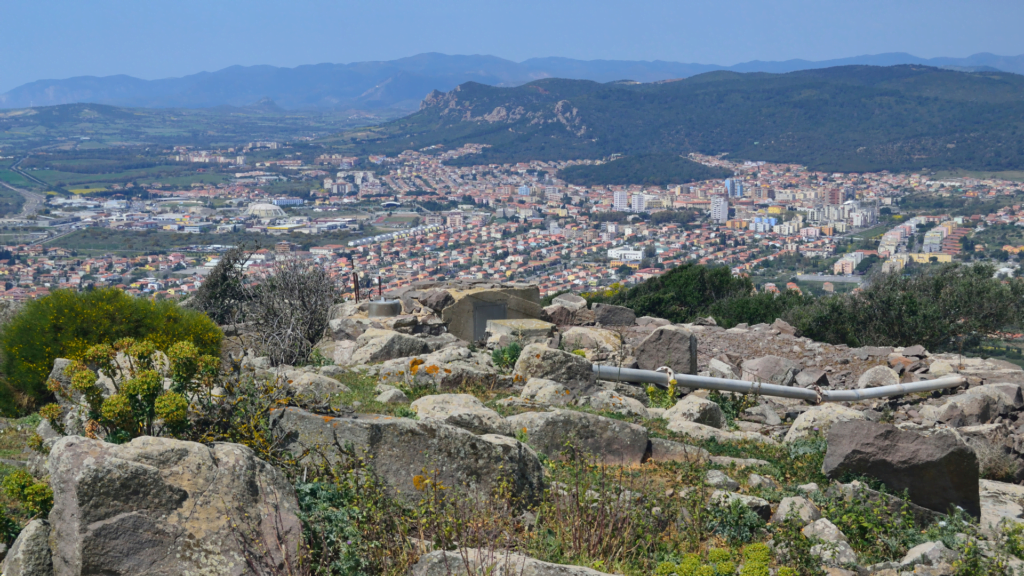

Villa Sulcis Archaeological Museum
Highlights of the Museum’s Collection
The Villa Sulcis Archaeological Museum serves as a central repository for artifacts discovered in the Carbonia region. The museum’s collection includes items from the Neolithic period, the Bronze Age, and the Punic and Roman eras. Highlights include the finds from the Nuraghe Sirai, the Domus de Janas necropolis, and the Su Carroppu shelter.
Importance in Understanding Local History
This museum is integral to the study of Carbonia’s history, offering a comprehensive overview of the area’s archaeological significance. Through its exhibits, the museum helps visitors understand the cultural and historical development of the region, from prehistoric times to the Roman period. Educational workshops and activities further enhance its role as a center for cultural education and preservation.
Nuraghe Sirai
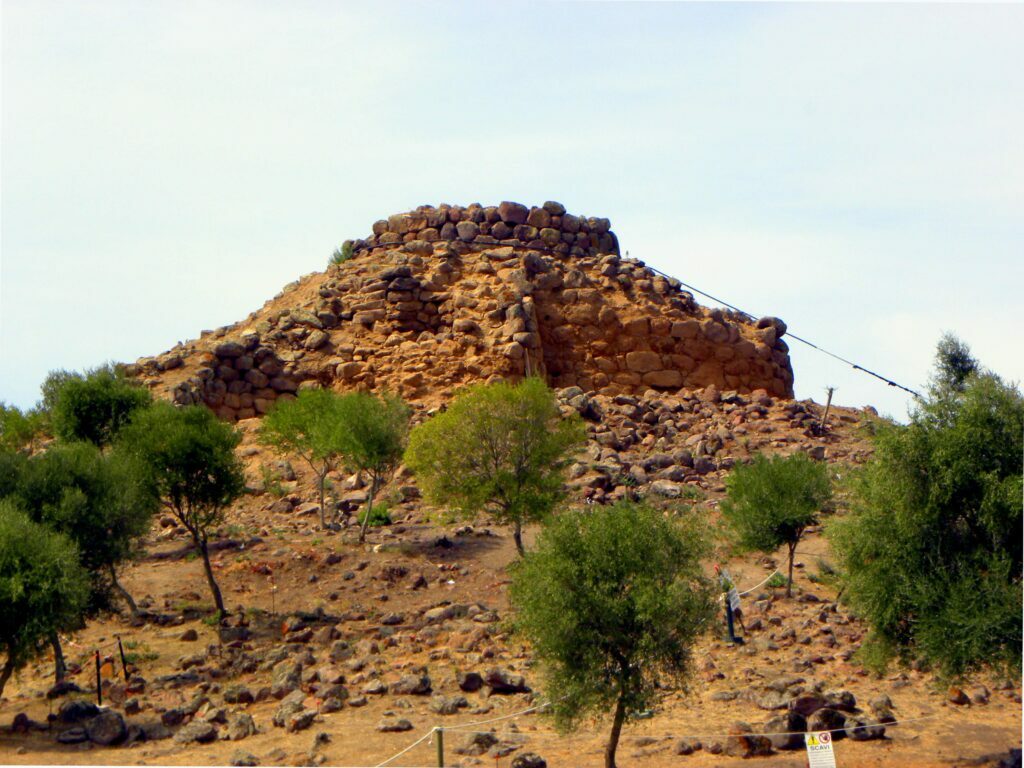

Nuraghe Sirai represents a unique example of the integration between Nuragic and Phoenician cultures. This archaeological site, located near the Monte Sirai Archaeological Park, features a complex nuraghe incorporated into a Punic fortress, showcasing a period of coexistence and integration between different cultures.
Visiting this site is a special experience, available only on particular occasions, allowing visitors to discover a significant piece of Sardinian history.
Museo dei Paleoambienti Sulcitani
Focus on Paleontological Findings
The Museo dei Paleoambienti Sulcitani, also known as the PAS/Martel Museum, focuses on the geological and paleontological history of the Sulcis-Iglesiente area. The museum is situated in the former workshop of the Great Mine of Serbariu, adding a layer of historical context to its exhibits.
Unique Features of the Museum
The museum’s collections include an extensive range of fossils, geological samples, and detailed displays of ancient environments. It highlights significant bio-events and geo-events recorded in the region’s rocks. The museum’s unique feature is its ability to connect the geological past with the historical industrial activities of the area, providing a comprehensive narrative from prehistoric times to modern history.
Chiesa di San Ponziano
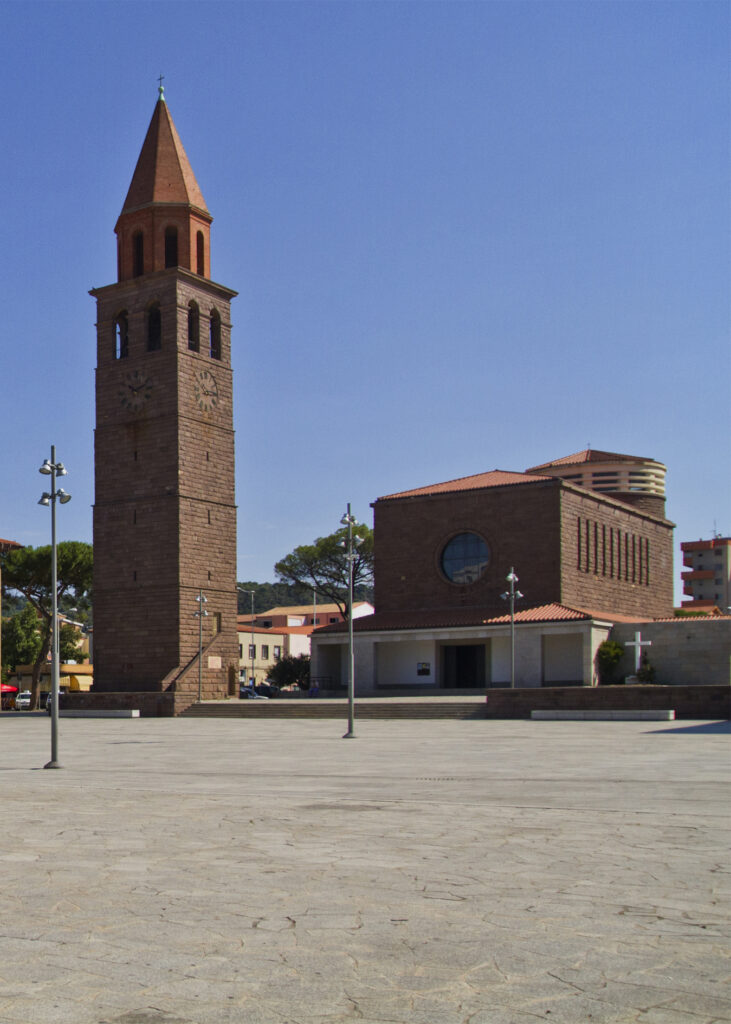

Architectural Details and Historical Background
The Chiesa di San Ponziano is a significant religious site in Carbonia, reflecting the architectural style of the early 20th century. The church was built during the town’s establishment in the late 1930s and is named after Saint Pontian, a Pope and martyr. Its architecture combines functionalism with elements of monumentalism, typical of the Fascist era’s architectural approach.
Importance to the Local Community
The church has been a central part of Carbonia’s community life, serving as a place of worship and a social gathering point for the town’s residents. It holds cultural and religious importance, hosting various ceremonies and festivals throughout the year. The Chiesa di San Ponziano stands as a symbol of the town’s historical roots and its ongoing cultural traditions.
Beaches Near Carbonia
Although Carbonia is not directly a seaside resort, its strategic location in the southwest of Sardinia makes it an ideal starting point for exploring some of the most beautiful and unspoiled beaches in the region. Here are some gems you can discover around Carbonia:
Cala Domestica
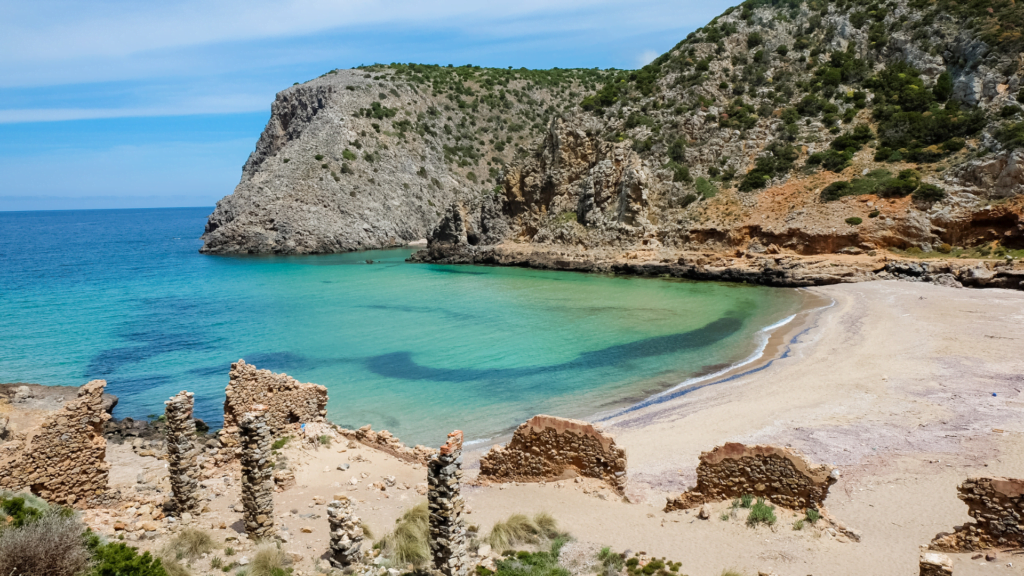

About an hour’s drive from Carbonia, Cala Domestica is a small bay nestled between high limestone cliffs. This beach is famous for its wild and unspoiled beauty, with turquoise waters and fine sand. It is an ideal place for a relaxing day at the sea, away from the crowds and immersed in nature.
Porto Pino
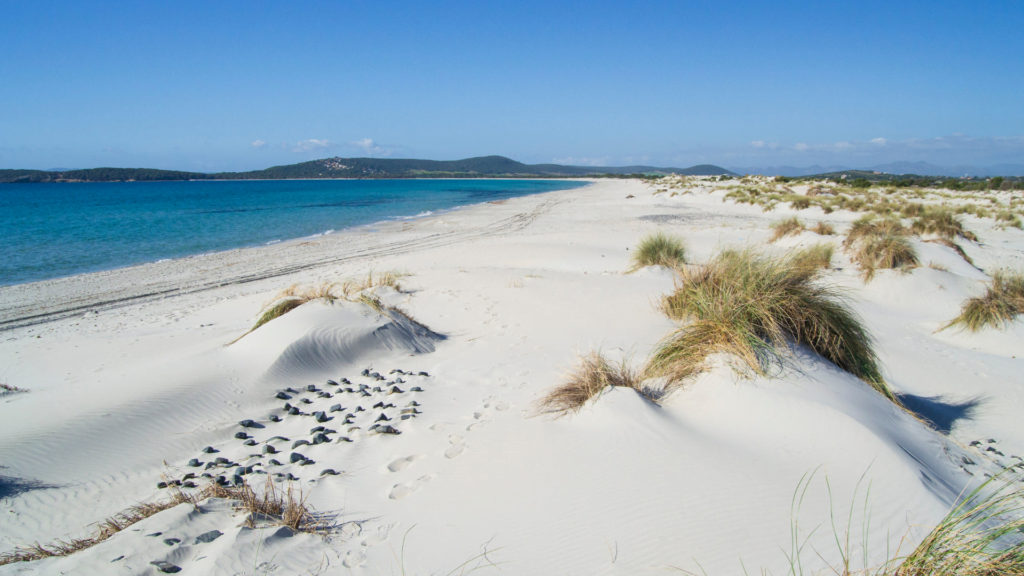

Porto Pino is one of the most famous beaches in Sardinia, known for its white and fine sand dunes that stretch for kilometers. Located about 40 minutes by car from Carbonia, this beach offers a tranquil and relaxing environment, with shallow waters ideal for families with children. Don’t miss the opportunity to admire the sunset from this corner of paradise.
Spiaggia di Masua
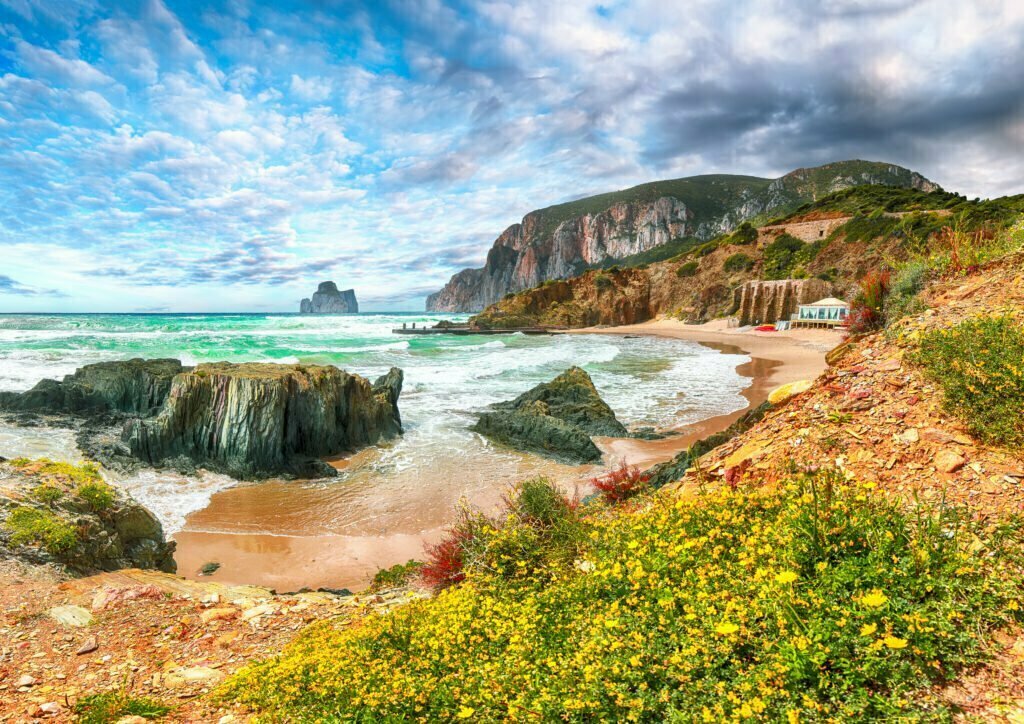

Located about 30 minutes by car from Carbonia, Spiaggia di Masua is a true natural paradise. This beach is famous for its crystal-clear waters and fine golden sand. The view is dominated by the presence of Pan di Zucchero, an impressive rock formation emerging from the sea, creating an almost surreal landscape. It is the perfect place for a relaxing day at the sea, with the possibility of snorkeling in its transparent waters.
Spiaggia di Portixeddu
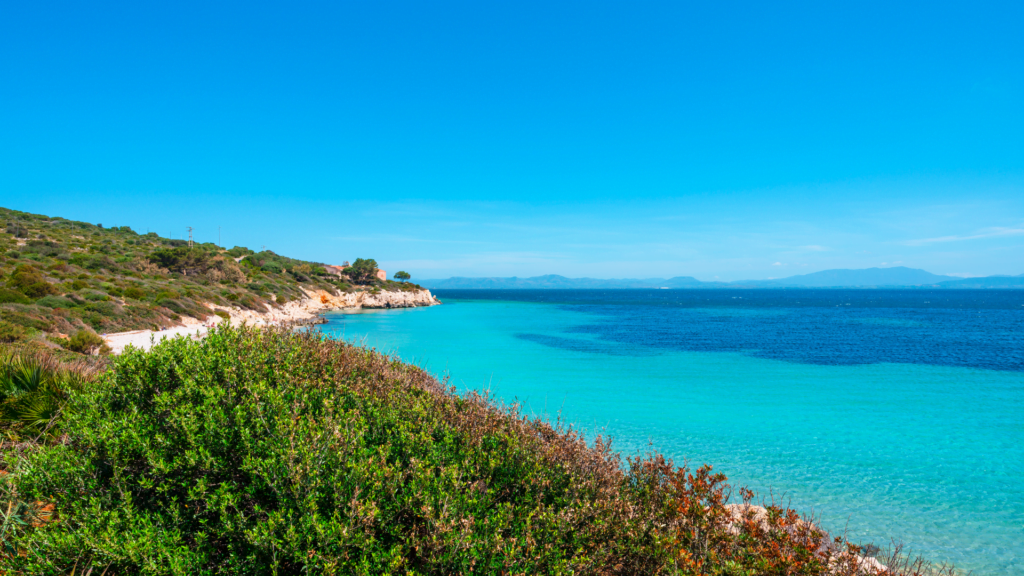

Spiaggia di Portixeddu, located about an hour and a half by car from Carbonia, is another hidden gem of the southwestern coast of Sardinia. This beach features a long stretch of golden sand, washed by crystal-clear waters and surrounded by lush Mediterranean vegetation. It is the perfect place for a day of relaxation and to enjoy the sea in all its beauty.
Spiaggia di Funtanamare
This beach is great for windsurfing and kitesurfing due to its favorable wind conditions. It’s less crowded, offering a more tranquil beach experience.
Outdoor Activities
Parco Colle Rosmarino
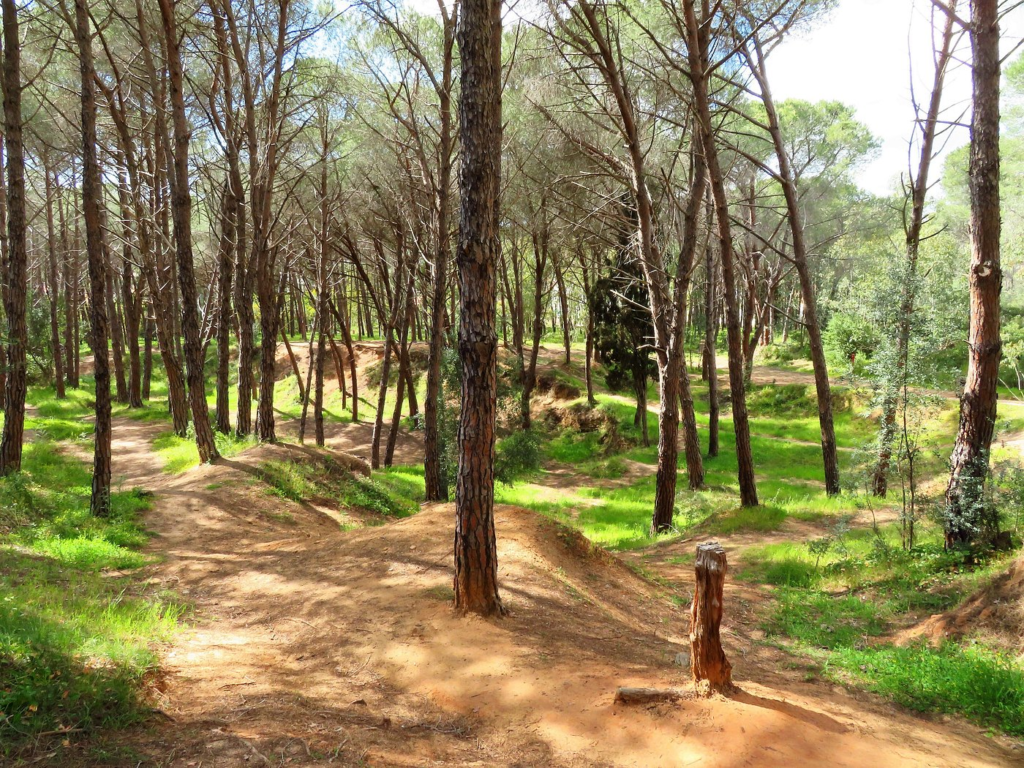

Description of the Park
Parco Colle Rosmarino is a picturesque park located in Carbonia, offering visitors a serene environment amidst lush greenery. The park is characterized by its diverse flora, including a variety of Mediterranean plants and trees, which contribute to its name, with “Rosmarino” referring to the rosemary plants found abundantly in the area. It provides a peaceful retreat for locals and tourists alike, making it an ideal spot for relaxation and nature appreciation.
Activities Available for Visitors
Visitors to Parco Colle Rosmarino can enjoy a range of outdoor activities. The park features well-maintained walking trails, perfect for leisurely strolls or more vigorous hikes. There are designated picnic areas where families and groups can enjoy outdoor meals. Additionally, the park has several benches and scenic viewpoints, offering stunning vistas of the surrounding landscape. Birdwatching is another popular activity, as the park is home to various bird species native to the region.
Area Animal Frendly Porto Pino
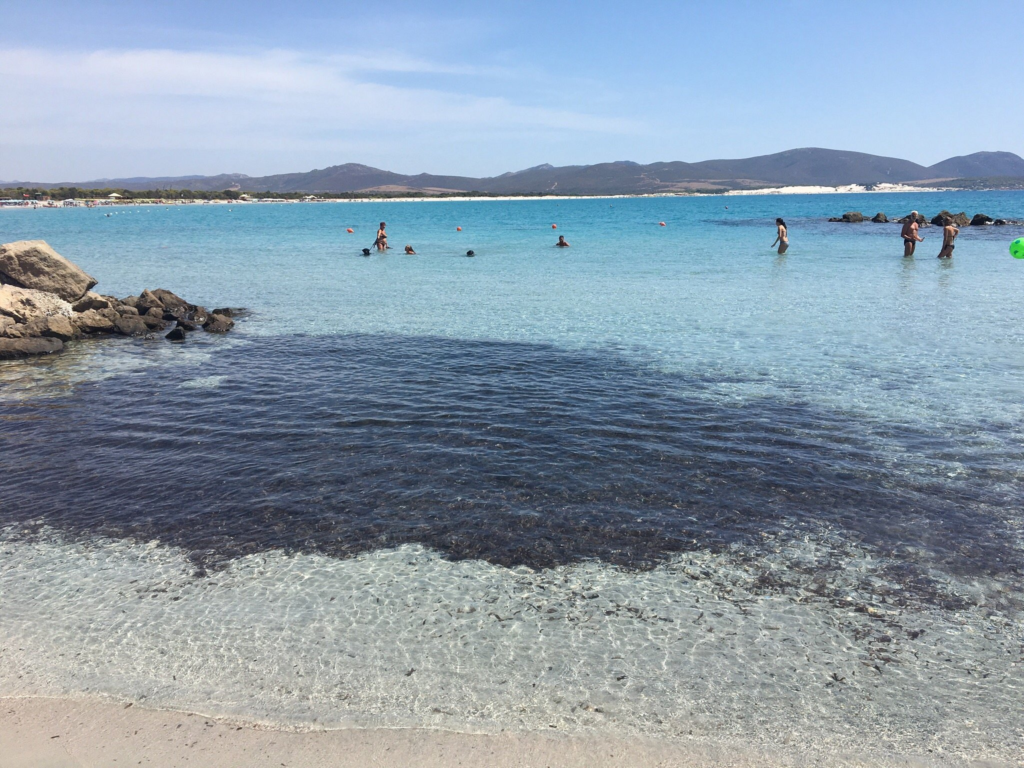

Overview of the Beach
Area Animal Frendly Porto Pino is a beautiful, pet-friendly beach located near Carbonia. This beach is well-known for its pristine white sand and crystal-clear waters, making it a perfect destination for beachgoers and their furry companions. The beach is spacious, providing ample room for pets to run and play freely.
Amenities and Pet-Friendly Features
The beach is equipped with several amenities to ensure a comfortable visit for both humans and pets. These include shaded areas, fresh water stations for pets, and waste disposal facilities to keep the beach clean. Additionally, there are designated areas where pets can roam off-leash, allowing them to enjoy the sand and surf. Visitors can also find nearby cafes and restaurants that welcome pets, making it easy to spend a whole day at the beach.
Vecchia Ferrovia del Sulcis
Historical Significance of the Biking Trail
The Vecchia Ferrovia del Sulcis is a historic biking trail that follows the route of the old Sulcis railway line. This railway was once a vital part of the region’s coal mining industry, transporting coal from the mines to various parts of Sardinia. After the decline of the mining industry, the railway was repurposed into a scenic biking and walking trail, preserving its historical significance while offering a recreational space for the community.
What Visitors Can Expect
Cyclists and hikers along the Vecchia Ferrovia del Sulcis can expect a unique journey through Sardinia’s industrial past, combined with the natural beauty of the region. The trail passes through diverse landscapes, including wooded areas, open fields, and remnants of the old mining infrastructure. Information panels along the route provide historical context, making the experience both educational and enjoyable. The trail is well-maintained, with clear signage and rest areas, ensuring a comfortable and safe outing for all visitors.
Nearby Attractions
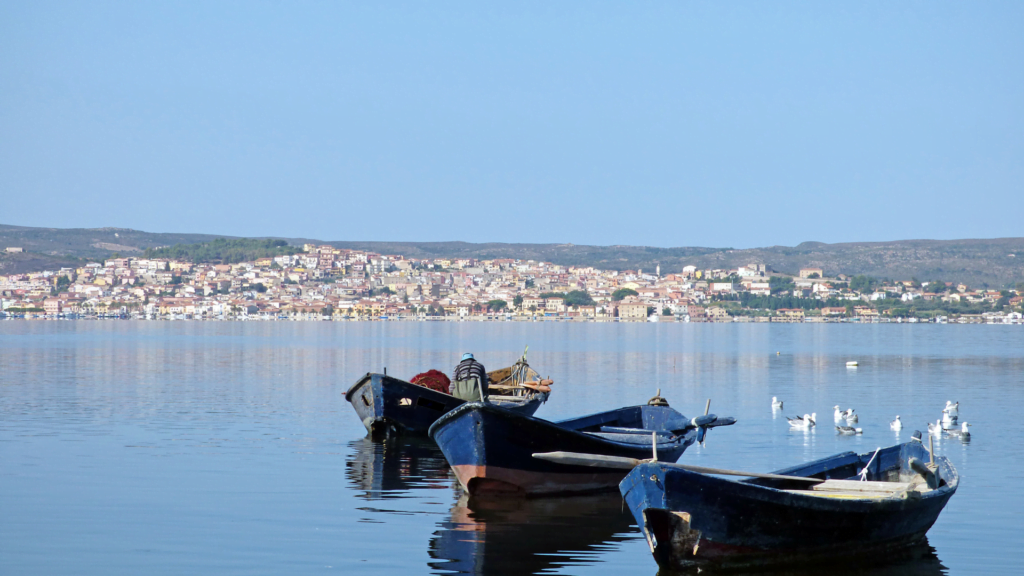

Sant’Antioco and San Pietro Islands
Accessibility from Carbonia
Sant’Antioco and San Pietro Islands are easily accessible from Carbonia, making them popular day-trip destinations. Sant’Antioco is connected to the mainland by a causeway, allowing visitors to reach the island by car or bus. The drive takes approximately 30 minutes. San Pietro Island can be accessed via a short ferry ride from either Sant’Antioco or the port town of Portoscuso, which is a 20-minute drive from Carbonia.
Main Attractions and Activities on the Islands
- Sant’Antioco Island:
- Sant’Antioco Basilica: An ancient church built over the catacombs of the island’s patron saint.
- Archaeological Museum Ferruccio Barreca: Showcasing artifacts from the island’s rich history, including Phoenician, Punic, and Roman periods.
- Beaches: Stunning beaches like Maladroxia and Coe Quaddus offer clear waters and beautiful sands.
- Water Sports: Opportunities for snorkeling, diving, and sailing.
- San Pietro Island:
- Carloforte: The island’s main town, known for its charming streets, colorful buildings, and vibrant cultural scene.
- Spiaggia La Bobba: A popular beach with clear waters and soft sand, perfect for swimming and sunbathing.
- Girotonno: An annual festival celebrating the island’s tuna fishing heritage with food, music, and events.
Grotte Is Zuddas
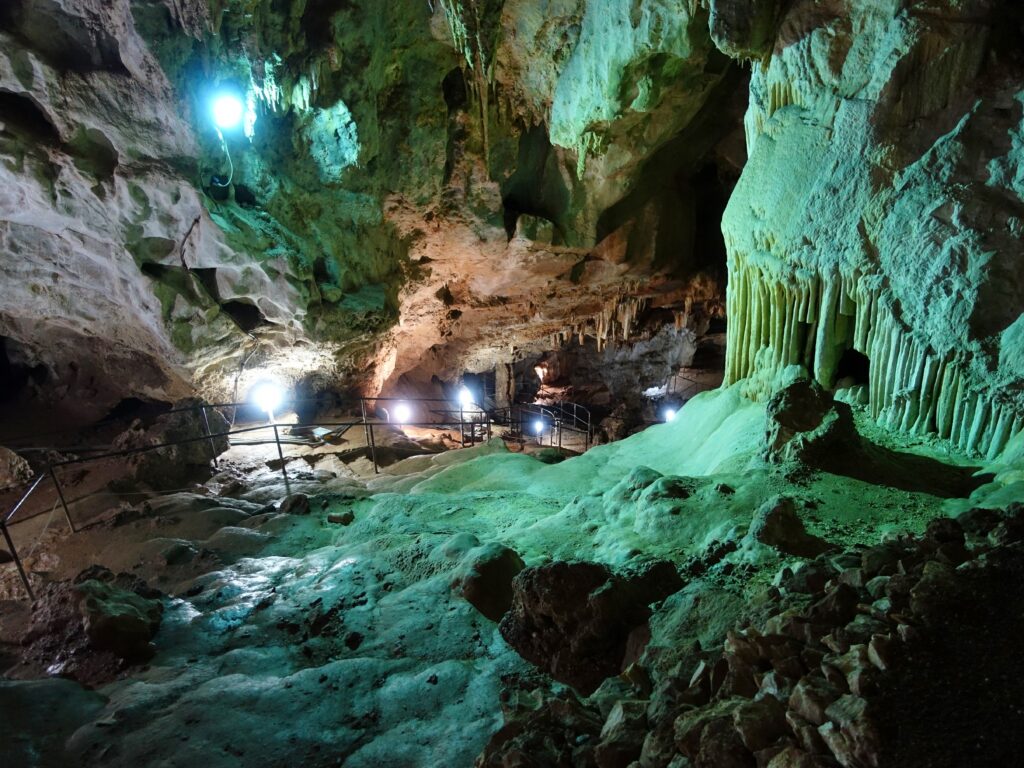

Highlights of the Limestone Caves
The Grotte Is Zuddas caves, located about 15 kilometers from Carbonia, are a spectacular natural attraction. These limestone caves are renowned for their impressive stalactites and stalagmites, some of which have formed unique and intricate shapes over thousands of years. The caves also feature rare aragonite formations, adding to their geological significance.
Tour Information and What to Expect
Guided tours of Grotte Is Zuddas are available and typically last about an hour. During the tour, visitors can explore several chambers, each with its distinct formations and features. The tours are conducted in multiple languages and provide detailed information about the geology and history of the caves. Comfortable walking shoes are recommended, and the constant temperature inside the caves makes them a pleasant visit year-round.
Accommodation
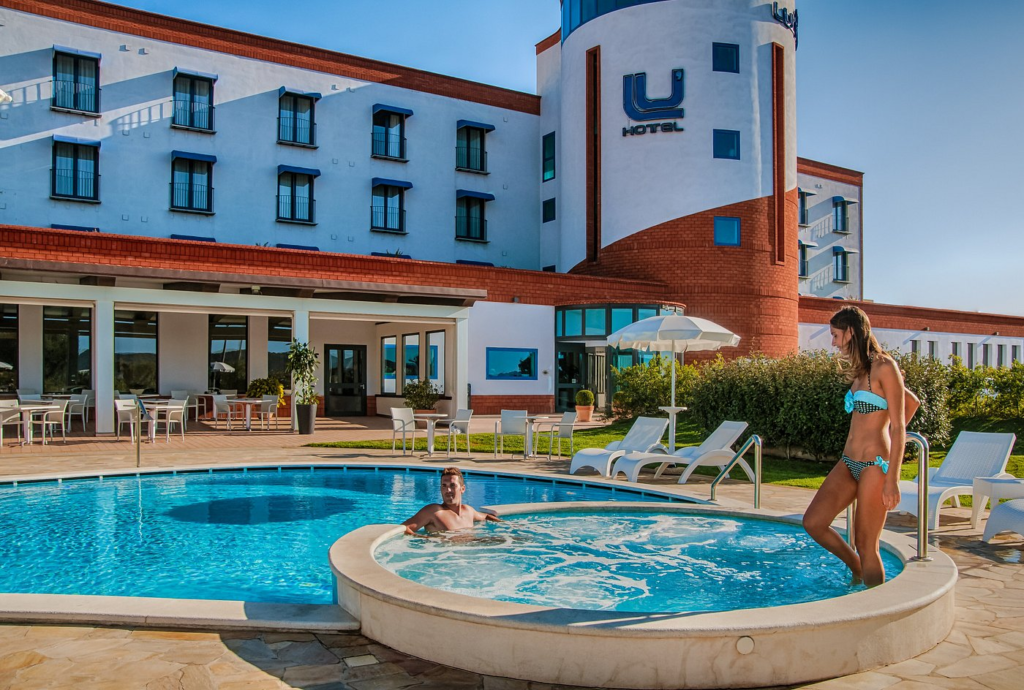

Recommended Places to Stay
- Lu’ Hotel Carbonia: A modern hotel offering comfortable rooms, a spa, and a restaurant. It is centrally located, making it a convenient base for exploring the town.
- Hotel Monte Sirai: This hotel offers a charming atmosphere with easy access to the Monte Sirai Archaeological Park and other local attractions.
- Agriturismo Su Meurreddu: For a more rustic experience, this agriturismo offers accommodation in a rural setting with traditional Sardinian hospitality and cuisine.
Where is Carbonia?
Carbonia is a town and comune located in the southwest of Sardinia, Italy, in the Province of South Sardinia. It is situated in the historic region of Sulcis, about 65 km west of Cagliari.
Carbonia Weather
How to Reach Carbonia
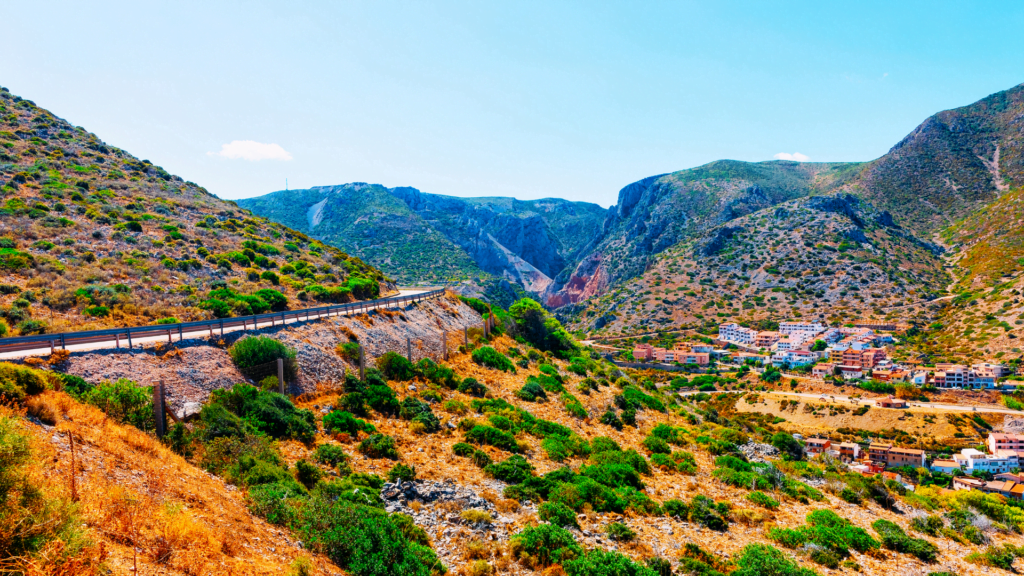

Here are the main options to reach this fascinating location:
- By Car. If you choose to reach Carbonia by car, you will have the freedom to explore the city and its surroundings at your own pace. From Cagliari, the most direct route is via the SS130, a state road that will take you directly to Carbonia in about an hour. During the trip, you can enjoy breathtaking views of the Sardinian countryside.
- By Train. For those who prefer to travel by train, Carbonia is served by the regional railway line that connects the city with Cagliari. The Carbonia Serbariu train station is the main arrival and departure point for regional trains. Traveling by train offers the opportunity to relax and enjoy the scenery without the stress of driving. Check the schedules and fares on the Ferrovie della Sardegna website to plan your trip.
- By Bus. Various bus services connect Carbonia with other cities and towns in Sardinia, offering a convenient and economical way to reach the city. The main bus companies operating in the area are ARST and Turmo Travel, which offer regular services to and from Carbonia.
- Car Rental. If you arrive in Sardinia by air or sea and do not have a car, you might consider the option of car rental. There are several car rental companies available in Sardinia, allowing you to explore Carbonia and its surroundings with ease and comfort. Having a car at your disposal will also make it easy to visit some of the beautiful beaches and tourist attractions around Carbonia.
Transportation Options Within Carbonia
Carbonia offers various transportation options to help visitors navigate the town and its surroundings:
- Local Buses: The local bus network covers the town and connects Carbonia with nearby towns and attractions. Buses are a convenient and cost-effective way to get around.
- Taxis: Taxis are readily available and can be hailed on the street, at taxi stands, or booked in advance. They are a good option for more direct and faster travel.
- Car Rentals: Renting a car provides the most flexibility for exploring Carbonia and the surrounding areas at your own pace. Several car rental services operate in Carbonia, with options for both short-term and long-term rentals.
- Bicycles: For those who enjoy cycling, renting a bicycle can be a great way to explore the town and its scenic routes. Many accommodations and local shops offer bicycle rentals.
Transportation Tips for Visitors
- Public Transport: Familiarize yourself with the local bus schedules and routes to make the most of the public transport system.
- Driving: If you plan to rent a car, remember that parking in the town center can be limited. Look for designated parking areas.
- Walking: Carbonia is relatively small and many attractions are within walking distance. Wear comfortable shoes for walking tours.
Travel Tips
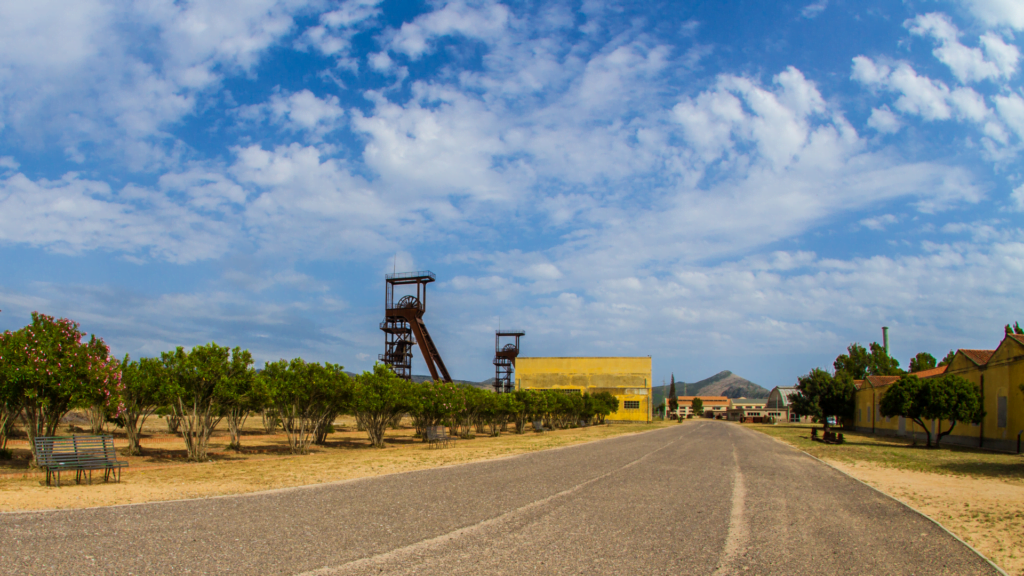

Best Times to Visit
- Spring (April to June): This is one of the best times to visit Carbonia. The weather is pleasant, and the countryside is lush and green. It’s also less crowded than the peak summer months.
- Autumn (September to October): Another great time to visit, with mild temperatures and fewer tourists. The autumn harvest season also offers opportunities to enjoy local food festivals.
- Summer (July to August): While the weather is warm and ideal for beach activities, this is the peak tourist season, so expect larger crowds and higher prices for accommodation.
FAQ
- What is the history of Carbonia?
It was built as a “new town” during the 1930s to house coal miners. You can learn more about this era by visiting the nearby city of Iglesias. - Are there ancient sites near this modern city?
Yes, the Phoenician-Punic site of Monte Sirai is located right on the outskirts. For more ancient ruins, explore our guide to Nuraghi in Sardinia. - How far is the sea from Carbonia?
The coast is quite close; you can reach the beaches of Sant’Antioco island in about 15-20 minutes by car. - Is Carbonia a good place to stay for exploring the southwest?
It offers a more affordable alternative to coastal resorts. Check our South Sardinia accommodation guide for more local tips.

